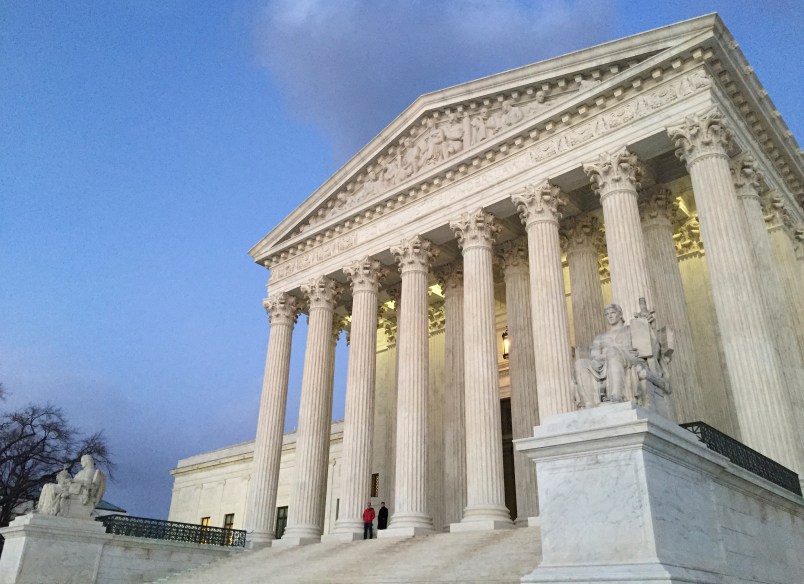The Justice Department is asking the Supreme Court to consider whether adding a citizenship question to the 2020 census violates the Constitution’s Enumerations Clause.
The request Monday came in the form of a letter to the Supreme Court from Solicitor General Noel Francisco asking the court to take up the constitutional issue in an appeal of a New York case that already pending before the court. The move comes after a federal judge in California in a different case ruled that the citizenship question is unconstitutional.
“In light of that finding,” Francisco wrote, referring to the California decision, “only if the Court addresses respondents’ Enumeration Clause claim can its decision definitively resolve whether the Secretary may reinstate a question about citizenship to the 2020 decennial census. ”
The Supreme Court will hear oral arguments in the New York census citizenship question case next month. In that case, a federal judge in Manhattan ruled that how the Trump administration went about adding the question violated the Administrative Procedure Act. The New York judge’s decision left open the possibility that the question could be included on the census if the administration found a way to add it that was in compliance with the administrative law.
Last week, U.S. District Judge Richard Seeborg of San Francisco went farther in the decision he issued in a consolidated case brought by California, the city of San Jose, and other challengers. In addition to violating the APA, Seeborg said that the harm the question would do to the accuracy of the decennial census — where it’s feared it will chill the participation of immigrant communities — is so great that it was also a violation of the Enumeration Clause, which mandates a count of the country’s population for the purpose of congressional apportionment. For that reason, Seeborg said he was blocking the Trump administration from adding the question regardless of its reasoning or process in doing so.
On Monday, Francisco highlighted that aspect of Seeborg’s decision for the court. He indicated that the Justice Department planned to appeal Seeborg’s decision and would seek to skip the 9th U.S. Circuit Court of Appeals — the President’s least favorite appeals court — in putting it before the justices. The Justice Department did a similar sidestep of the 2nd U.S. Circuit Court of Appeals in the New York case, a move the challengers didn’t oppose given the deadline for printing the census forms this year.
“In light of the June 2019 deadline to finalize the decennial census questionnaire, we respectfully suggest that the most orderly path forward would be for this Court to hold the forthcoming California petition and address the Enumeration Clause claim in its disposition of this case,” Francisco said. “That would avoid the prospect of having to address the Enumeration Clause claim in the California case in a highly expedited or emergency posture.”
The letter noted that the Justice Department’s briefs in the New York case addressed the Enumeration Clause issue in anticipation that another court would find a violation on the basis of those grounds.
“In the alternative, if the Court has any concerns about addressing respondents’ Enumeration Clause claim in this case, it should grant the government’s petition in the California case and consolidate that case with this one for oral argument,” the letter said.
Read Francisco’s letter in full here.






